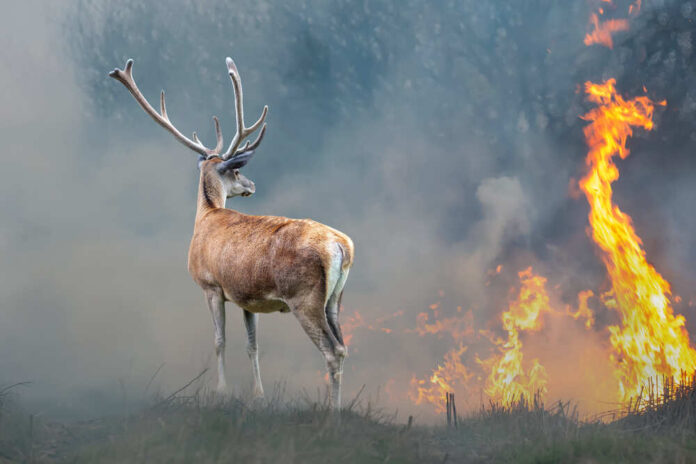
Following a season of historic wildfires, officials in Canada this week said that the country could be in for another similar year ahead.
On Wednesday, Canadian officials said this past winter saw drought conditions widespread throughout the country as well as temperatures that were warmer than typical. Outlooks for the weather coming up show that Canada might expect temperatures that are again greater than they normally are throughout the spring and summer, which could set the stage for more raging wildfires.
At a press conference this week, Harjit Sajjan, the country’s emergency preparedness minister, said:
“With the heat and dryness across the country, we can expect that the wildfire season will start sooner and end later, and potentially be more explosive.”
The wildfire season in Canada typically starts in May and ends in October. The country is covered in a lot of forest, consisting of about 9% of the total forests in the world.
According to Sajjan, last year was the worst on record for wildfires, in terms of how destructive they were. During last summer, more than 6,000 fires burned in parts of the country, which destroyed upwards of millions of acres.
Hundreds of thousands of residents were forced to evacuate as the fires got close to their homes.
The fires got so bad that smoke billowed and traveled all the way to the United States. At times, parts of the Midwest and East Coast were covered in smoke, making it look as if it were night in the middle of the day.
In June, with wildfire smoking blowing in from Canada, New York City recorded the worst air quality in the world.
Last year, the severe weather in Canada caused more than $3.1 billion in insured damages, according to officials.
The country is now preparing for another potentially destructive season ahead. The federal government is already working with local governments to look at what happened last summer and see if there’s anything they can put in place to be better prepared this time around.
That will include more planning for emergency preparedness as well as additional risk assessments. One of the focuses has been on obtaining firefighting equipment specialized for fighting wildfires and giving firefighters the proper training they need.
As Sajjan commented:
“It is impossible to predict with certain that the summer that lies ahead of us, but what is clear, is that wildfires will represent a significant challenge for Canada into the future as the impacts of climate change continue to intensify.”
The latter point is something that many Canadian officials have focused on as an area of need for the future.
Steven Guilbeault, the country’s minister of environment and climate change, said in a statement:
“Extreme weather events are becoming far too familiar to Canadians as the impacts of climate change hit our communities. These events are costing Canadians and their governments billions of dollars.”













